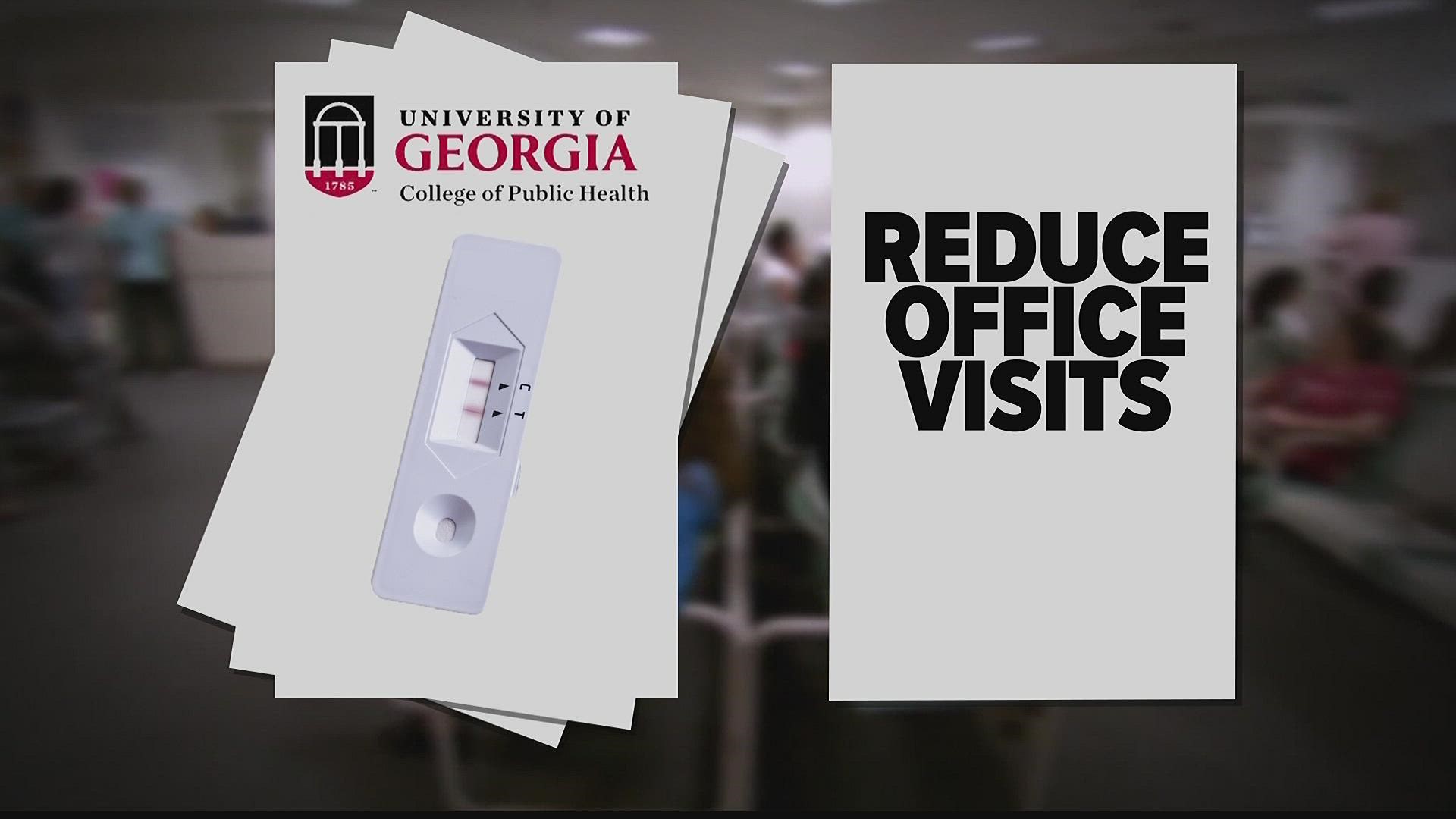ATLANTA — As the flu maintains its grip on the country, scientists are promoting at-home influenza tests as a way of avoiding unnecessary doctor’s visits while slowing the spread.
Nationwide, cases of the flu peaked during the winter, declined, then started rising again in April. The most recent numbers from the Georgia Department of Public Health shows cases remain low in the state, but 11 people were hospitalized with the flu in metro Atlanta the last week of April.
When Lauren Baggett’s one-year-old came home from daycare with a fever, she didn’t immediately think of the flu.
“But then his daycare teachers had mentioned that there was flu in his classroom,” said Baggett. “We took him to the pediatrician to get tested, and sure enough, he had flu. I was really surprised at how late the flu was affecting anyone.”
During the pandemic, home COVID tests became a common and useful tool. New research involving scientists at the University of Georgia indicates home flu tests could be just as helpful.
“If you say 'I've got cough and fever, and by the way, I did this home test and it was positive,' does that change the decision making? We found it did,” said Dr. Mark Ebell with UGA’s College of Public Health.
Dr. Ebell and other scientists spoke with physicians about the influence of home flu tests, presenting scenarios involving a patient’s symptoms along with test results.
“Approximately half of clinicians changed their clinical management decision after being given the home influenza test result,” said Ebell. “They said 'oh, okay, well, we can manage you at home.'”
A study out of the University of Washington found home flu tests to be comparable in accuracy to the rapid tests given at a doctor’s office.
The FDA has given Emergency Use Authorization for a combination COVID-Flu at home test. The tests are new and can be difficult to find.
An online search found some available with a price typically around $100.
The University of Washington study addressed the importance of expanding access and lowering cost.

